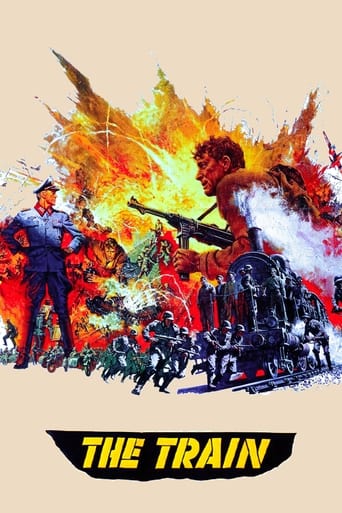It carried their hopes, their nation's honour!
"The Train," a gripping 1964 war film co-produced by Les Productions Artistes Associés and Les Films Ariane in France and Italy, masterfully blends historical drama with intense action sequences. Directed by John Frankenheimer and starring Burt Lancaster, the film is set during the final days of World War II and follows the efforts of French Resistance fighters to prevent a train loaded with priceless artworks from falling into Nazi hands. The narrative is inspired by real events, specifically the efforts to protect France's cultural heritage from Nazi plunder, adding a layer of authenticity and urgency to the plot. The film's protagonist, Paul Labiche, portrayed by Lancaster, is a railway engineer who becomes the linchpin of the resistance's plan. Labiche's journey is one of moral complexity and personal sacrifice, as he grapples with the cost of saving art while his comrades and loved ones face imminent danger. The tension is palpable as Labiche and his team devise ingenious methods to delay the train without arousing the suspicions of the ruthless Nazi Colonel Franz von Waldheim, played with chilling precision by Paul Scofield. What sets "The Train" apart is its meticulous attention to detail and the use of real trains and locations, which lend the film a gritty realism rarely seen in war movies of its time. The action sequences, particularly the train derailments and sabotage efforts, are executed with a thrilling intensity that keeps viewers on the edge of their seats. The film's black-and-white cinematography enhances the starkness of the wartime setting, while the dynamic camera work captures the frenetic pace of the resistance's race against time. Beyond its thrilling plot and technical prowess, "The Train" raises profound questions about the value of art and the lengths to which individuals will go to protect it. The film serves as a poignant reminder of the cultural devastation wrought by war and the indomitable spirit of those who fought to preserve beauty amidst chaos. With its compelling narrative and powerful performances, "The Train" remains a timeless testament to the resilience of the human spirit and the enduring importance of art in our lives.
年1964
予算5800000$
上映時間133 分
収益6800000$
ジャンル戦争スリラー
製作国FranceItalyUnited States of America

